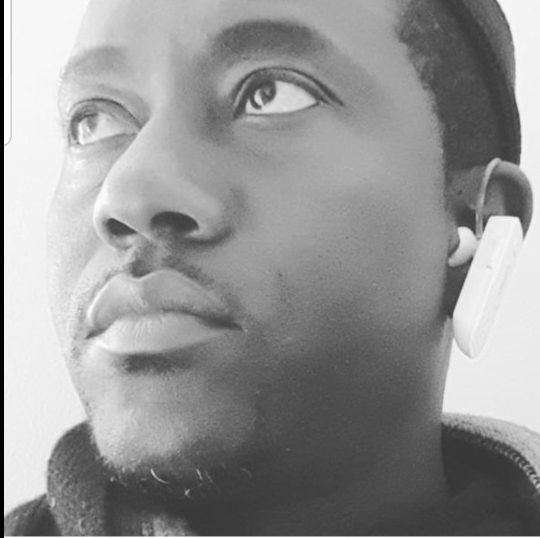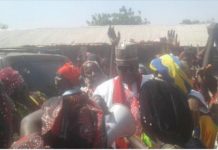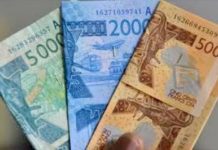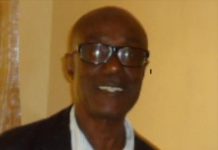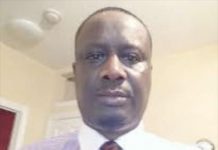As the year is about to zoom out of oblivion, everyone is trying their best to recount epic moments that defined the year, and probable takeaways that will forever be etched in their minds. How do we recount the events that defy logic? How did we escape from certain incidence, whilstothers were not so lucky? And why do we sometimesdream, and miserably fail to recall what we dreamt about? Like Novalis, the German philosopher cum- poet says we are near waking when we dream that we dream. Perhaps, I was merely dreaming when I was asked by doctors at Jacobi health center in New York, on a fateful afternoon of December 26th to sign a consent form before they could perform perforated ulcer on me. To this day, I still could not fathom the brave face I put up with when the doctors who thought I was going to decline the request to undergo a surgery, consented. Many patients avoid surgery because it is a matter of life or death; I chose life, knowing full well, it is only Allah who has knowledge of the unknown, and it is only Him who knows when and where the angel of death will take our souls. I therefore, prayed in solitude for Him to spare me and enable me undergo this operation successfully. There were so many things on my mind as I lay in bed surrounded by at least six female doctors who were waiting for me to sign the papers before the time for the operation. When I saw the lead surgeon looking at her wrist watch, a tinge of fear flashed in my heart, I heaved a deep breathe, and paused. I started to imagine whether my time on earth was really up. Suddenly, one of the surgeons said I should provide them the contact mobile number of someone who will be contacted after my operation. I knew the implied meaning of this: in other words, the surgeon was infering that I may not survive this operation, should death occur, they will contact that individual. At the operating room, everyone was armed with a knife; one of the last statements one of the surgeons uttered was to check whether I wore any bangle or bracelet. I was stark naked saved for the white gown that I had sported. My thoughts started to vacilatebetween surviving the operation or dying but there was no time as Iwent through the general amnesthia surgery patients are required to undergo. For me that period of unconsciousness was akin to “little death”, because I didn’t realize what had happened to my body.
When I woke up from my “deep sleep after the surgeons were done with me’’ and ushered into the post-surgery room. A nurse handed a remote control and told me to switch a certain button when I needed help. After a while, I heard the voice of Marafang Tambajang the older brother of the owner of the apartment where I was lodged in the Bronx, called my name. “Thank God, I have successfully gone through the operation” I said to him. I was not expecting any visitor at the time, because New Yorkerswereusually very busy at this time of the year. I was not going to blame anyone for not visiting because I know it’s a gigantic struggle to work hard and pay a mountain of bills. For others, it was perfect moment to spend quality time with loved ones during the holiday season. The old man sat near my bed, andconsoled me; memories of the Gambian hospitality kicked in. I have never been admitted to a hospital in my life, while in the Gambia, I used to visit friends or family members when they are admitted to a hospital. I can recalled instances when visitors had to spend the night at the waiting shed of the Edward Francis teaching hospital in Banjul or other health centers. After a while, another nurse appeared and said I was going to be transferred to another room after my condition had stabilized. I politely asked Marafang to go home and assured him that the nurses would take care of me. Iasked him to deliver my phone charger to his son, Mbemba to enable me charge my phone and communicate with my family in the Gambia.
On that morning, I left my apartment in a hurry; after tossing and turning in bed the whole of the night because the pain in my stomach couldn’t just let me sleep. I made distress calls to alert my roommates – Mbemba Tambajang & Ousainu Niasse,to take to the hospital. I was lying flat on the floor, sweating profusely on a wintry morning! Ousainu Niasse, realized that I had firmly placed my hand on my abdomen,he began reciting some verses from the Quran to soothe me. Suddenly, the pain subsided, Mbemba had gone upstairs to alert the landlord, Lansana Tambajang, who fractured his leg on his way to my room. However, he asked Mbemba to flag a taxi to Jacobi which was about a few minutes drive from where we lived. Before this operation, I was eagerly looking forward to welcoming 2019 with fanfare at the iconic Times Square, after all, I was done with my NYU Fall exams and theschool was closed. I needed a break to enable me unwind with old friends, family, and loved ones. I had a longambitious list of places to visit. As fate had it, I was going to spend the new year at a hospital with strangers.Whilst my impression of Jacobi may be clouded with fear of the unknown, especially during the countdown to the theatre room. I met some kind Gambian-born health workers; who were quite helpful. Few minutes after my admission, Fanta Trawally, a native of Janjang Burehentered the patients’room and read my name written on a small paper fastened on my wrist. (this reminded me about my pilgrimage in Mecca, for every pilgrim was required to have this as identification). My encounter with Fanta brought me fond memories of The Gambia, but the truth was that my stomach was hurting. She began by asking where I lived in the Gambia, whether I was the one who used to work at GRTS-TV. I nodded my head in response, “Oh the pain, my stomach is hurting” I cried, eager to be given medicine to ease the pain. She assured me that the doctors will take good care of me.
The treatment regime was rigorous, for three flat days, the doctors insisted that I should be not given water and food at all! OMG! I cried as different duty nurses tried to calm me, “we cannot defy what the doctors say”, one of the nurses whispered to me. Amadou Keita, was the second Gambian-born nurse I met; originally from Baddibu, in the North Bank region. Occasionally, Amadou and I spoke our native Gambian languages, changed my grown and gave me ice to wet my throat.
Thanks to Fanta’s efforts, a relative of mine, Tida Sabally visited me upon hearing that I was at Jacobi. My landlord who was struggling with his fractured leg, tip-toed to my bedside later that evening. He assured me that I will be fine. It was an overwhelming experience, I felt that I didn’t deserve this attention and affection.
Every morning, the doctors examined all the patients and made recommendations to the nurses on the treatment regime and would tell the patients if their condition was improving or when they will be discharged. The senior doctors were usually accompanied by an army student doctors sometimes from NYU, or other eliteteachinghospitals. After the inspection, I asked my doctor when will I eat and drinkagain, she smiled and said to me soon. “How soon”? I didn’t get a response.
Outside my room, in the words of the late Gambian poet, Dr. Peters, I could hear “the silent-throated sister” bellowing in the background. Some patients have been brought in. The doctors and nurses ran amok, trying to salvage the situation. Sometimes they had to abandone us to handle more complex issues. I pitied the health workers for enduring all sorts of insults and in some cases physical attacks from some patients who called the doctors names. I changed rooms for the forth time in two days; I was put up with a lousy patient who wasadmitted at the hospital after he was involved in a violent gunfight in the city. Despite his pain, the boy was glued to his cell phone, talking to family members and loved ones and occasionally, when he wanted to visit the bathroom, he will shout; “nurse, nurse, nurse” When the nurses appeared, the boy told them that he hadforgotten what he wanted to tell them.
By December 28th, it dawned on me, I’m going to welcome 2019 at Jacobi. Some of the nurses were not keen to work on new year’s eve or the first day of the new year- in any case, it wasunderstandable. On new year’s eve, I was transferred to another room by now, I was getting hungrier everday relishing the opportunity to drink and eat again. I was accomodated in a spacious room withbeautiful multi-colored curtains,where I saw the snow falland melt away.
As the night wears on, my mind hovered back to The Gambia, following various Banjul-based online channels that feed its audience news and current events from The Gambia. Reporters were deployed at strategic places such as the busy Senegambia strip where party revelers usually hang out to celebrate the new year.
On the first day of the new year, I was taken out of my bed by one of the doctors and made to drink a white substance that tasted like chalk. The doctor said if I threw up, I won’t be allowed to drink or eat because it was a sign that I was not getting better. Thank God, I passed the test.
After, awhile, a nurse brought me a sumptuous soup; and said I have now been cleared to drink and eat normal food. At lunch, a cart loaded with good food and drinks was emptied on my table. The nurse cutely said I should get up and eat. I spent the night watching epic images of the famous Congolese soukus singer, Koffi Olamide entertaining Equitorial Guinea president Theodore Obiang and his guest former Gambian president Yahya Jammeh.I was wowed with the activities taking place around the world; the dancing party at Malabo stunned me.
I was discharged from Jacobi on January 3rd and continued swallowing tonnes of tablets everyday until I regained my health.
The author, Ebrima Baldeh, a Gambian-born journalist in September 2018, benefited from a World Journalism Fellowship to study MA Journalism at NYU.

